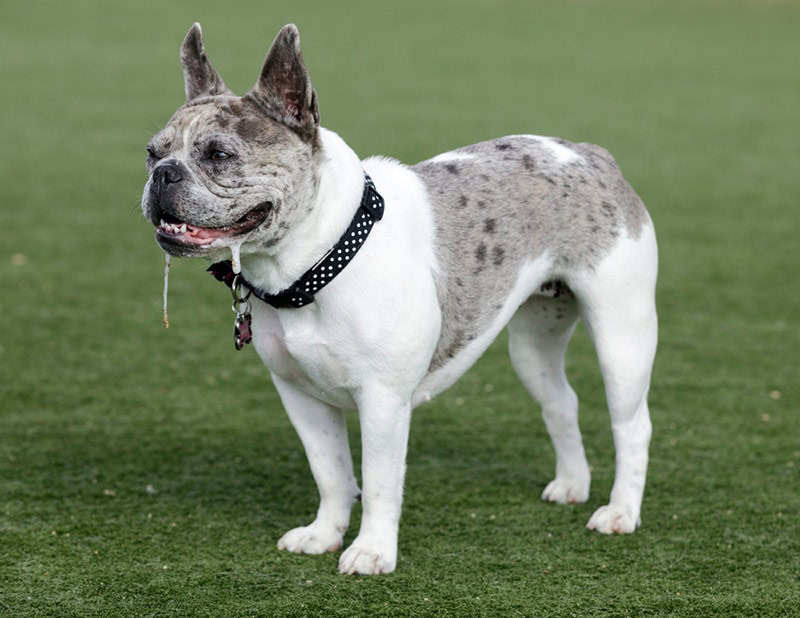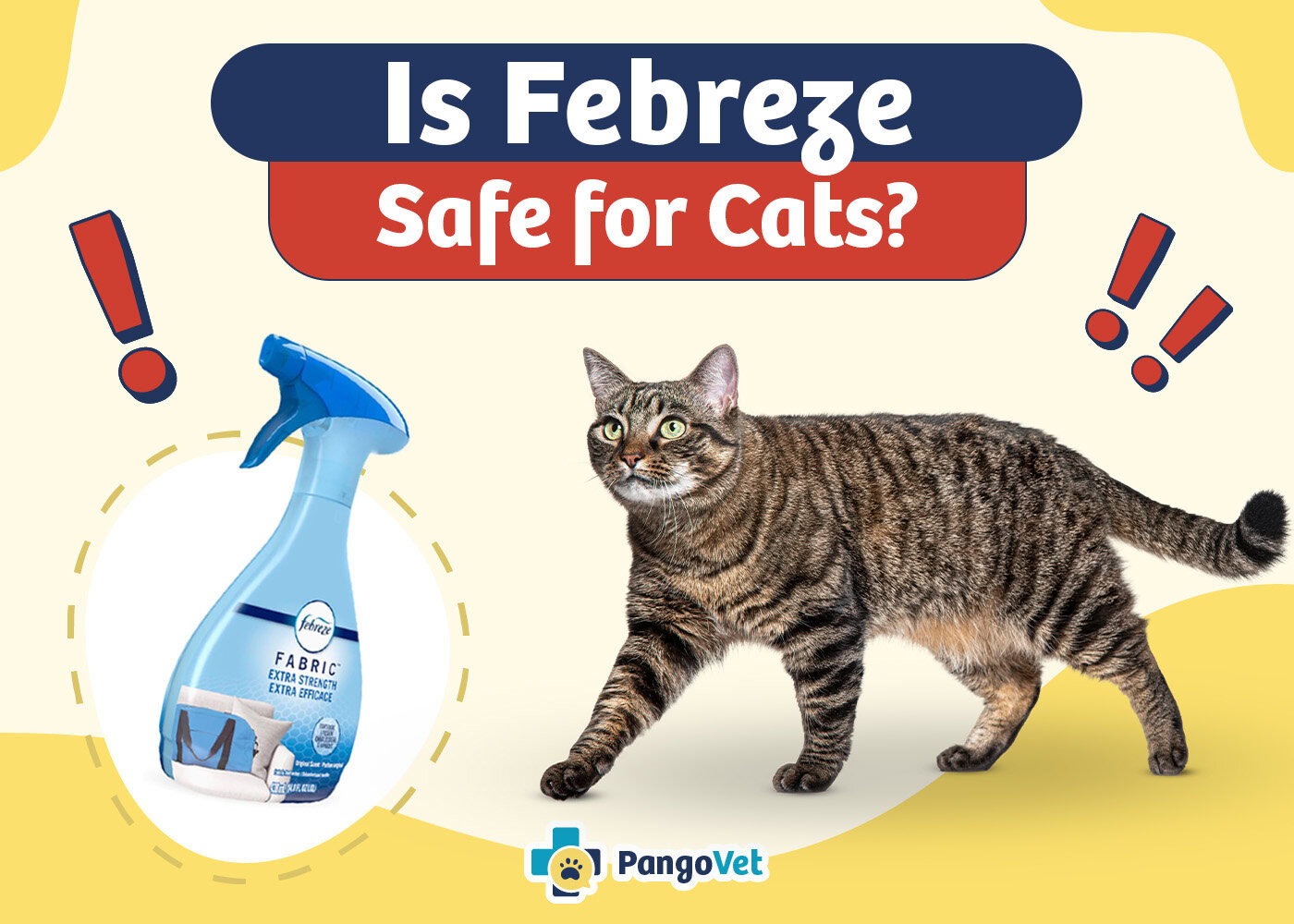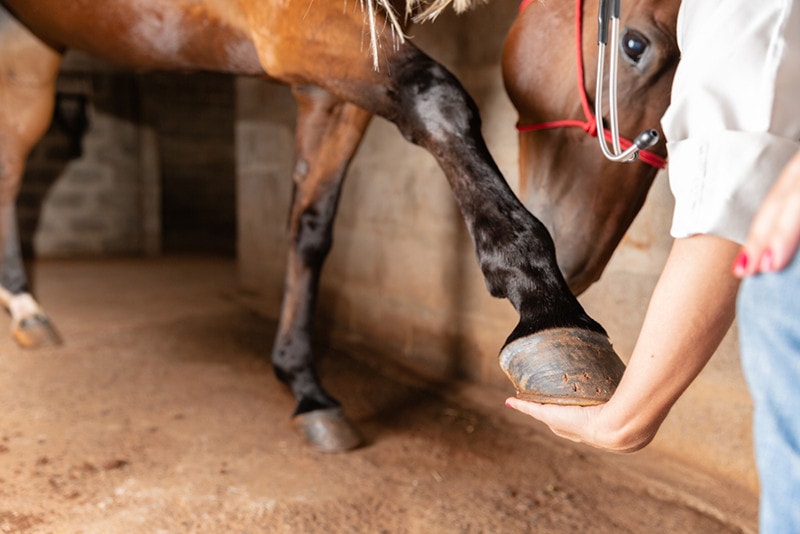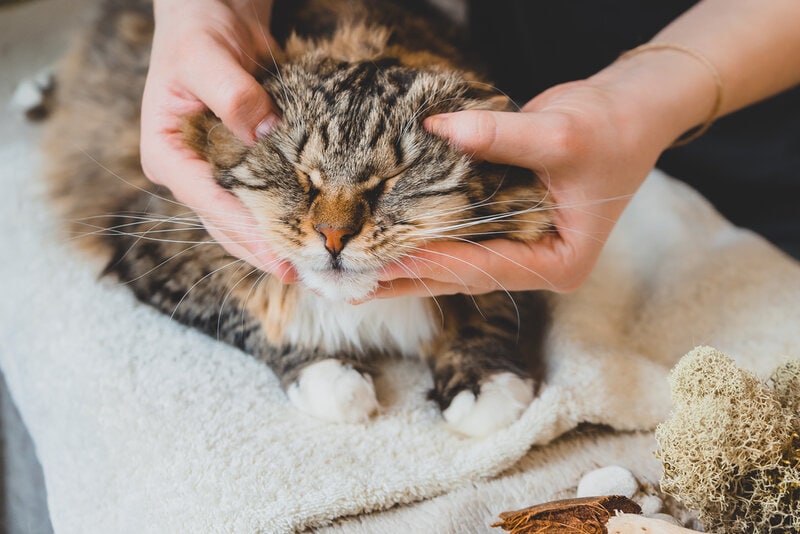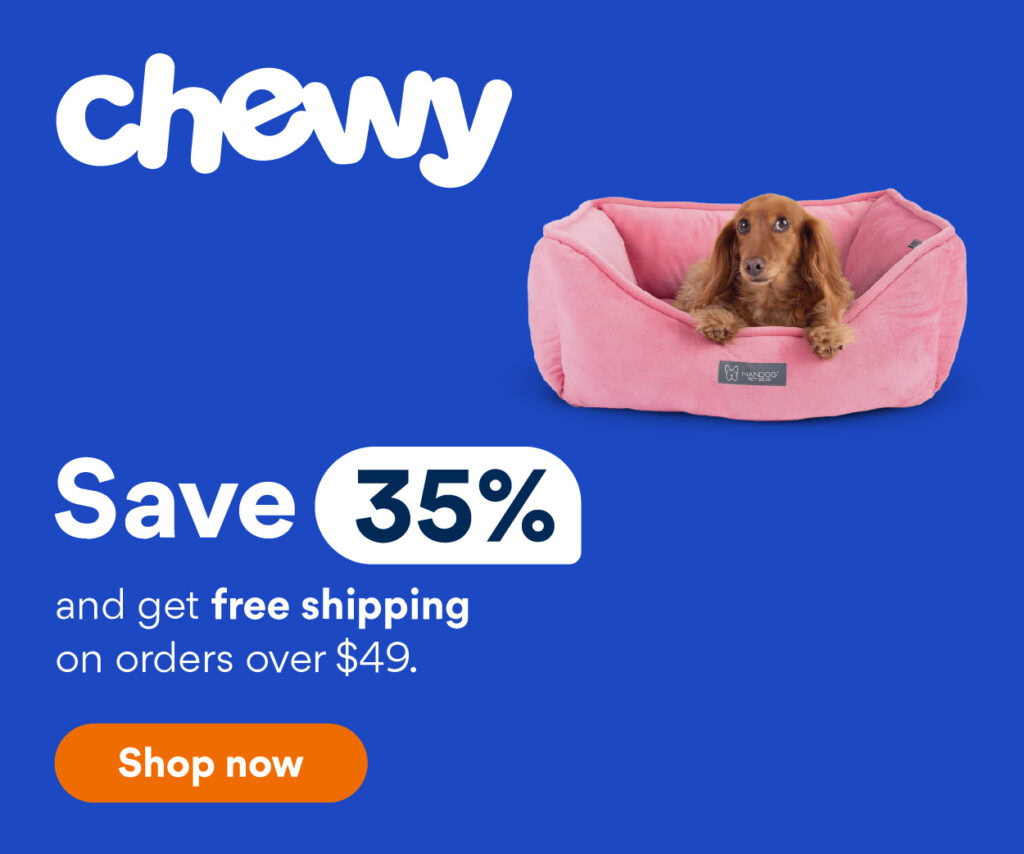VET APPROVED

The information is current and up-to-date in accordance with the latest veterinarian research.
Learn more »Click to Skip Ahead
Bringing home a dog means understanding and getting used to canine behaviors. Drooling is a common occurrence that many dog owners come across while living with a dog. However, there are some cases in which hypersalivation is a sign of an underlying health issue that requires examination and treatment. So, you may be able to reduce drooling if it’s due to an abnormal cause. In other cases, it’s just a normal thing with your dog. Here are some common reasons why dogs drool and how to address them.

The 7 Reasons Dogs Drool
1. Normal Behavior
Just like how dogs have their own unique personalities and quirks, some dogs can drool more than others. Normal drooling is often triggered by a cause. Dogs can begin to drool if they smell their food or are waiting to receive a treat. They can also drool a lot when they’re gnawing on chews or toys. Sometimes, they’ll drool when they nap or sleep with their mouths slightly open.
Some dog breeds have a tendency to drool more than others. In most cases, small dog breeds aren’t heavy droolers, while larger breeds with loose upper lips, like Mastiffs and Saint Bernards, are known to drool a lot.
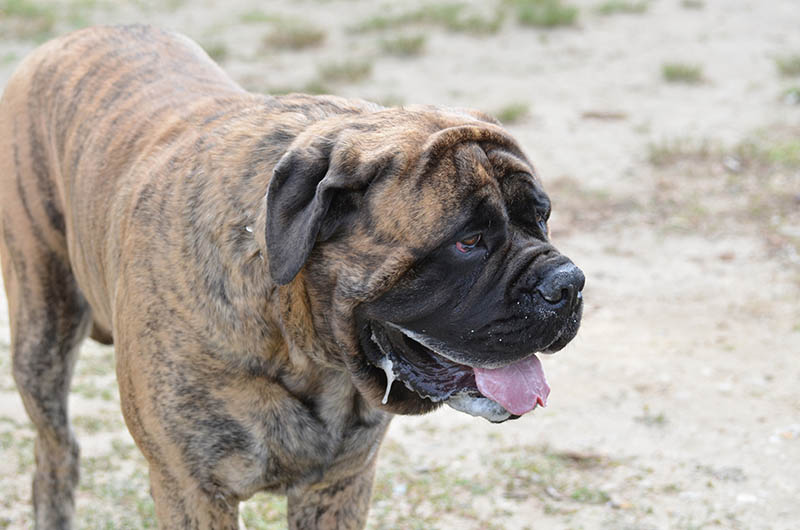
2. Gastrointestinal Issues
There are some cases in which dogs drool due to gastrointestinal issues. Some gastrointestinal disorders that can cause drooling include esophagitis, gastritis, pancreatitis, gastrointestinal cancers, and inflammatory bowel disease. Drooling may also be a sign of foreign body obstruction.
When dogs experience gastrointestinal issues, they can also feel nauseous. Nausea can also cause dogs to drool excessively. Other signs of nausea include licking the lips excessively, restlessness, panting, retching, vomiting, and repeated swallowing or gulping the air.
3. Mouth, Throat, and Dental Issues
Both mouth injuries and dental diseases can cause dogs to drool. Mouth injuries that affect a dog’s ability to close their mouths properly can make dogs drool, and lacerations that make swallowing painful can also increase drooling. Mouth injuries can be caused by a variety of factors, like chewing on a sharp stick or bone or slipping and falling on the face.
Dental issues can also increase drooling in dogs. Tartar buildup is a common dental issue that causes drooling if it’s rubbing against the lips. Broken or abscessed teeth may contribute to drooling as well. Your dog may also drool if they’re experiencing throat pain and having difficulty swallowing.
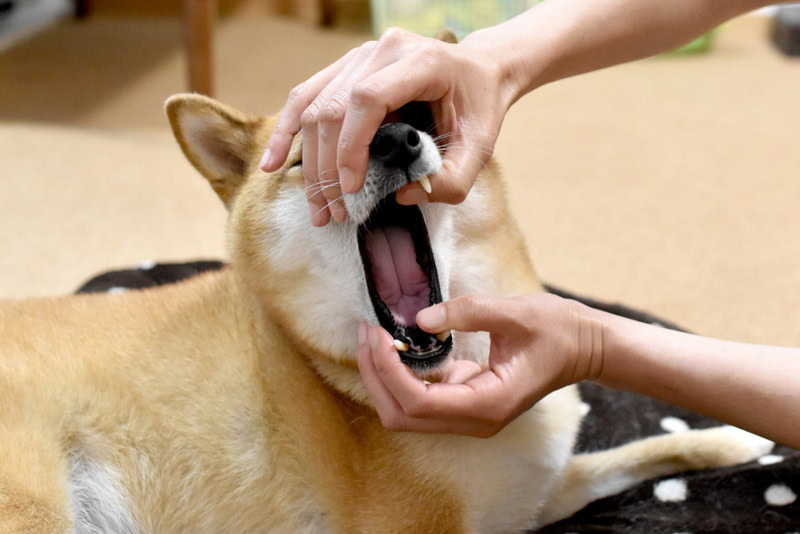
4. Toxins and Poisoning
There are many common foods, plants, and home products that are toxic to dogs, and ingesting items containing toxins can cause dogs to drool. Along with poisonous foods and plants, it’s important to be aware of poisonous animals. Some insects, like monarch butterflies and weevils, produce toxins and a bad taste that may make dogs drool when they’re ingested.
Venomous spider bites and insect stings can also cause dogs to drool. It’s also important to keep your dog away from amphibians and reptiles, as certain frogs and snakes produce venom that can cause serious health complications for dogs. Some amphibians also produce fluids on their skin that can taste bad or cause irritation to a dog’s mouth, causing drooling.
5. Neurological Conditions
There are a variety of neurological conditions that can cause hypersalivation. Such conditions include idiopathic trigeminal neuritis and facial nerve paralysis. Dogs experiencing convulsions or seizures can experience foaming at the mouth or drooling.
Neurological disorders can be caused by several different issues. Ingesting or coming into contact with certain toxins can impact the nervous system. Other possible causes of neurological disorders include genetic disorders, cancers, or trauma.
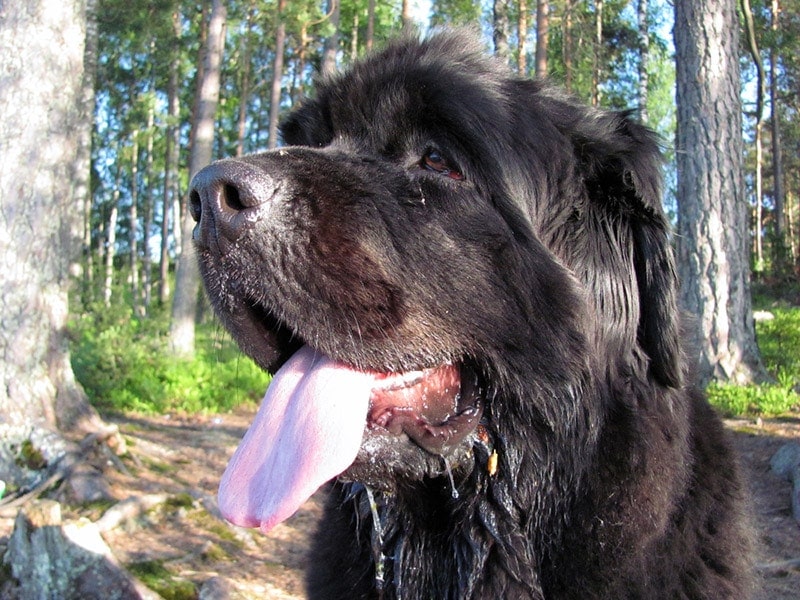
6. Infections
Certain bacterial and viral infections can cause hypersalivation. Drooling and foaming around the mouth can be signs of rabies or tetanus. One of the best ways to protect your dog and reduce the risk of contracting rabies is to ensure their rabies vaccinations are up to date.
While dogs are at a lower risk of contracting tetanus, it’s still important to treat wounds and injuries properly. Taking your dog to the veterinarian will help your dog’s wound stay clean and heal with a lower risk of infection.
7. Anxiety
Drooling can also be a sign of a behavioral issue. Some dogs can start to drool more when they’re feeling anxious. Other signs of anxiety in dogs include trembling, tail-tucking, hiding, and digestive issues.
Dogs can start to feel anxious for a variety of reasons. Loud noises like fireworks and thunderstorms can cause dogs to feel fear. Sudden changes like moving to a new home or switching up the daily routine can also cause dogs to feel anxious.
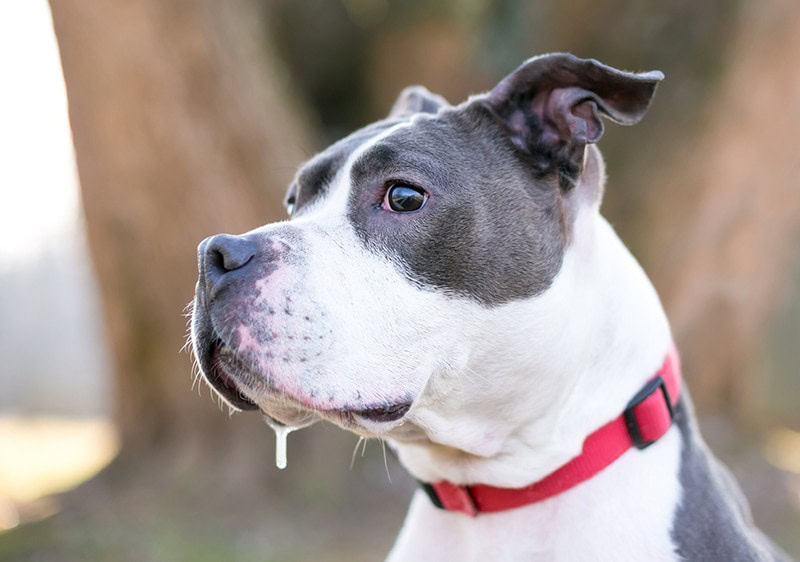

When It’s Time to See the Veterinarian
If you have a dog that’s drooling excessively, it’s best to visit the veterinarian to figure out the root cause. Veterinarians can perform a physical exam to determine if drooling is a sign of an underlying health issue. They can also verify if drooling is just normal for your dog.
It’s also important to take your dog to the veterinarian if your dog doesn’t usually drool but starts to hypersalivate suddenly. It’s helpful to look for other signs of diseases or illnesses like gastrointestinal upset, abnormal behaviors, and nausea.
Make sure to be prepared to give your veterinarian information that will help make an accurate diagnosis. Your veterinarian may ask when the hypersalivation first started, if there have been any changes to your dog’s diet or routine, and if your dog could have potentially been exposed to toxins.

Conclusion
Some dogs will drool a lot more than other dogs, and it’s something that their owners just have to get used to. However, there are some cases where excessive drooling is a sign of a bigger health issue. So, if you notice hypersalivation in your dog, make sure to consult your veterinarian to figure out the cause. There are many reasons for hypersalivation in dogs, so it’s best to receive help from a professional to ensure your dog gets the proper diagnosis and treatment for recovery.
Featured Image Credit: yhelfman, Shutterstock
